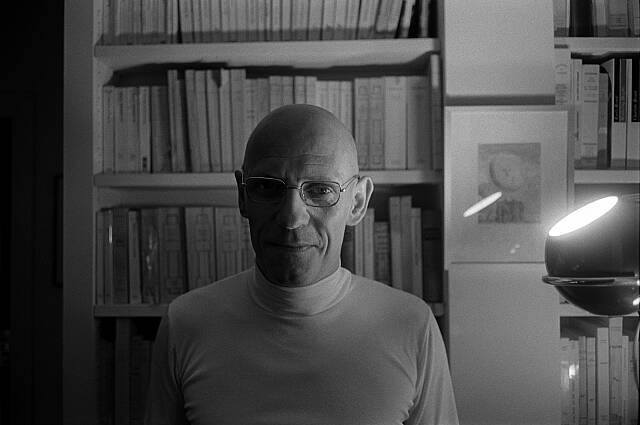Power Quote
Power Quote: Foucault on Creation

“My desire is that a book, at least for the person who wrote it, should be nothing other than the sentences of which it is made; that it should not be doubled by that first simulacrum of itself which is a preface, whose intention is to lay down the law for all the simulacra which are to be formed in the future on its basis. My desire is that this object-event, almost imperceptible among so many others, should recopy, fragment, repeat, simulate and replicate itself, and finally disappear without the person who happened to produce it ever being able to claim the right to be its master, and impose what he wished to say, or say what he wanted it to be. In short, my desire is that a book should not create of its own accord that status of text to which teaching and criticism will all too probably reduce it, but that it should have the easy confidence to present itself as discourse: as both battle and weapon, strategy and shock, struggle and trophy or wound, conjuncture and vestige, strange meeting and repeatable scene.”
[from the preface to the 1972 edition of History of Madness]
Tags: History of Madness, Michel Foucault

“That first simulacrum of itself” is the book’s writer, continuing ‘to dictate’ what the book can and should mean or do – right?
So Foucault is saying, ‘I will that, having written this book, I no longer am its “writer”.’ That is a tight performative contradiction.
I think the ‘first simulacrum of itself’ is the book’s writer initially dictating what the book can and should mean or do, rather than letting the book just be its own text.
If you’re interested, his essay ‘What is an Author?’ is pretty spectacular.
Yes, that’s what I meant to mean, Madison: the writer, having let go (in some way) of the text, persisting in imposing the text’s meaning by reaching right ‘through’ the text – well, that’s what Foucault wants his Preface to his own book not to do, nor indeed anything he might ever say about it. – which is an interestingly, if necessarily not successfully, self-erasing way ‘to preface’ a text.
The preface is the “first simulacrum” of the book. The “it”, the book, should not be anything other than the text. Second simulacrum: dust jacket copy.
Agreed; in the case of this edition of The History of Madness, there’s this “Preface”, which Foucault is using to erase its own function or effect (of causing the book to mean what its writer wants it to mean).
But I think Foucault is using “preface”, in the phrasing “that first simulacrum of itself which is a preface”, in the general sense of ‘introduction-which-is-also-an-explication’, which sense is common to both French and English.
‘I want to preface my remarks by telling you . . .’ – that’s what Foucault ‘desires’ that nothing he says about the text, including its very “Preface”, do.
Agreed. After that one I can’t take seriously anyone who turns an author into an adjective, most especially “Foucauldian.”
And the Madness book is filled with brilliant insight. Among his best most important work.
– but I think you’re right keedee – the “first simulacrum” is not the writer, but rather the writer’s trace (of imposition, of control) that’s called, in this edition, its “Preface”: the writer’s attempt to govern the text after its fact of having been written by prefacing its reception (in this case, with a literal “Preface”).